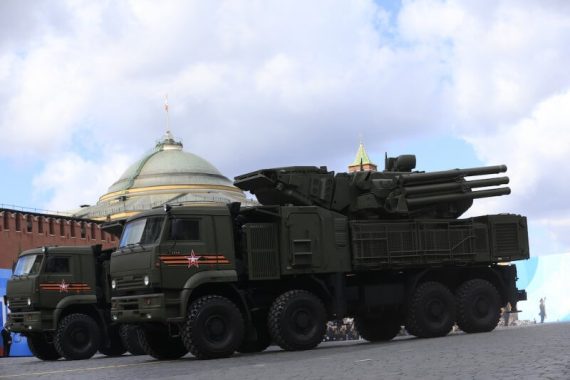I
n a recent development, U.S. intelligence sources have revealed that Syrian President Bashar al-Assad has consented to supply the Lebanese militant group, Hezbollah, with a Russian-made air defense system, according to CNN. This move has raised concerns on the international stage due to the increasing tensions in the region.
The delivery of the SA-22 (Pantsir) anti-aircraft missile system will be facilitated by the Wagner Group, a paramilitary organization funded by the Russian state, which has been operating in Syria.
Initial intelligence suggests that Russia had initially supplied this defense system for the exclusive use of the Syrian government.
The Pantsir system
The U.S. is actively monitoring the movements associated with the Pantsir system. This decision to monitor has been informed by intelligence data obtained from discussions involving Assad, the Wagner Group, and Hezbollah about the potential delivery.
Earlier reports from The Wall Street Journal hinted at the possibility of the Wagner Group supplying the system to Hezbollah, but there was no mention of Assad’s involvement at the time.
The Wagner Group and Hezbollah militants have a history of cooperation in Syria, working alongside Russian and Syrian forces to bolster the Assad regime.
Concerns are mounting that this missile defense system may bolster Hezbollah’s capabilities, leading to a potential shift in the balance of power in the region.
Hezbollah, backed by Iran, has been a significant force in Syria against the Syrian opposition, lending support to the Assad regime. While there have been signs of Hezbollah reducing its militant presence in Syria in recent years, its collaboration with Iran, Assad’s close ally, remains strong.
This intelligence revelation comes amid broader concerns about the potential of Hezbollah opening a new front against Israel, especially after the recent conflict between Israel and Hamas. The US has taken preventive measures by positioning aircraft carriers and troops in the region to deter any escalation.
International reactions:
The White House’s National Security Council spokesperson, Adrienne Watson, expressed concern over the news, emphasizing Russia’s refusal to condemn Hamas for “the terrorist attack on Israel and their continued involvement in Ukraine.”
Given the recent exchanges of fire between Hezbollah and Israeli forces, and the ongoing tensions in Gaza, the international community is closely watching the situation to see how it unfolds.
Russia declined that Wagner is going to transfer the defense system to Hezbollah in a statement made by the Kremlin.
Sources: Arab News, CNN, WSJ and Pravda.
Recommended





